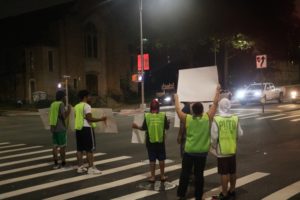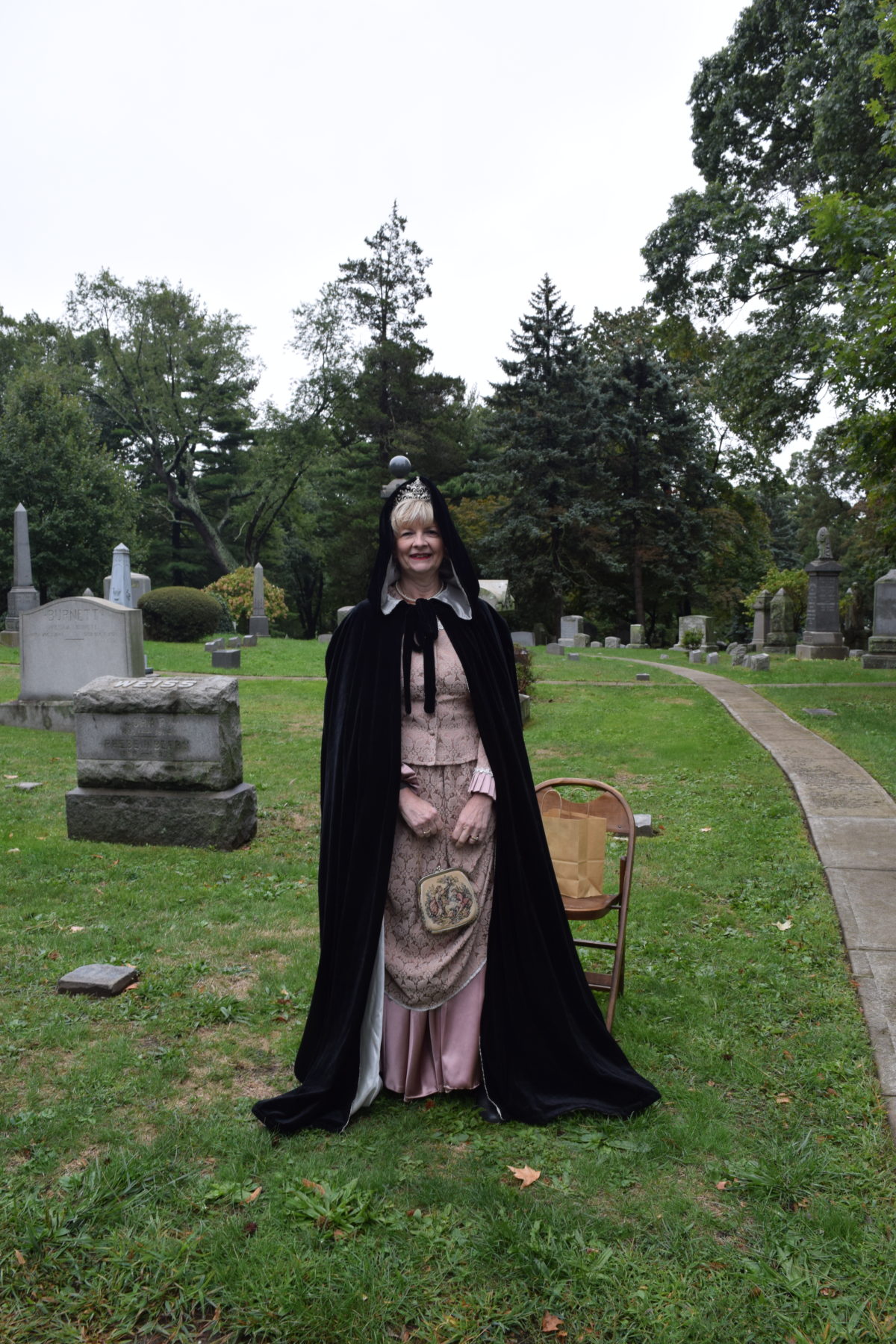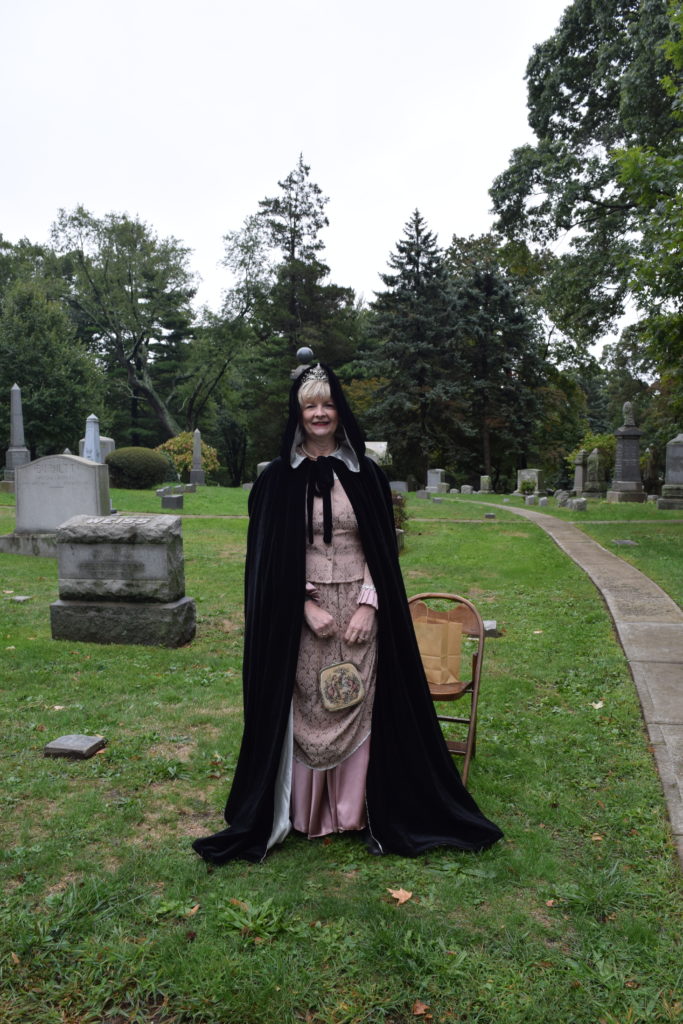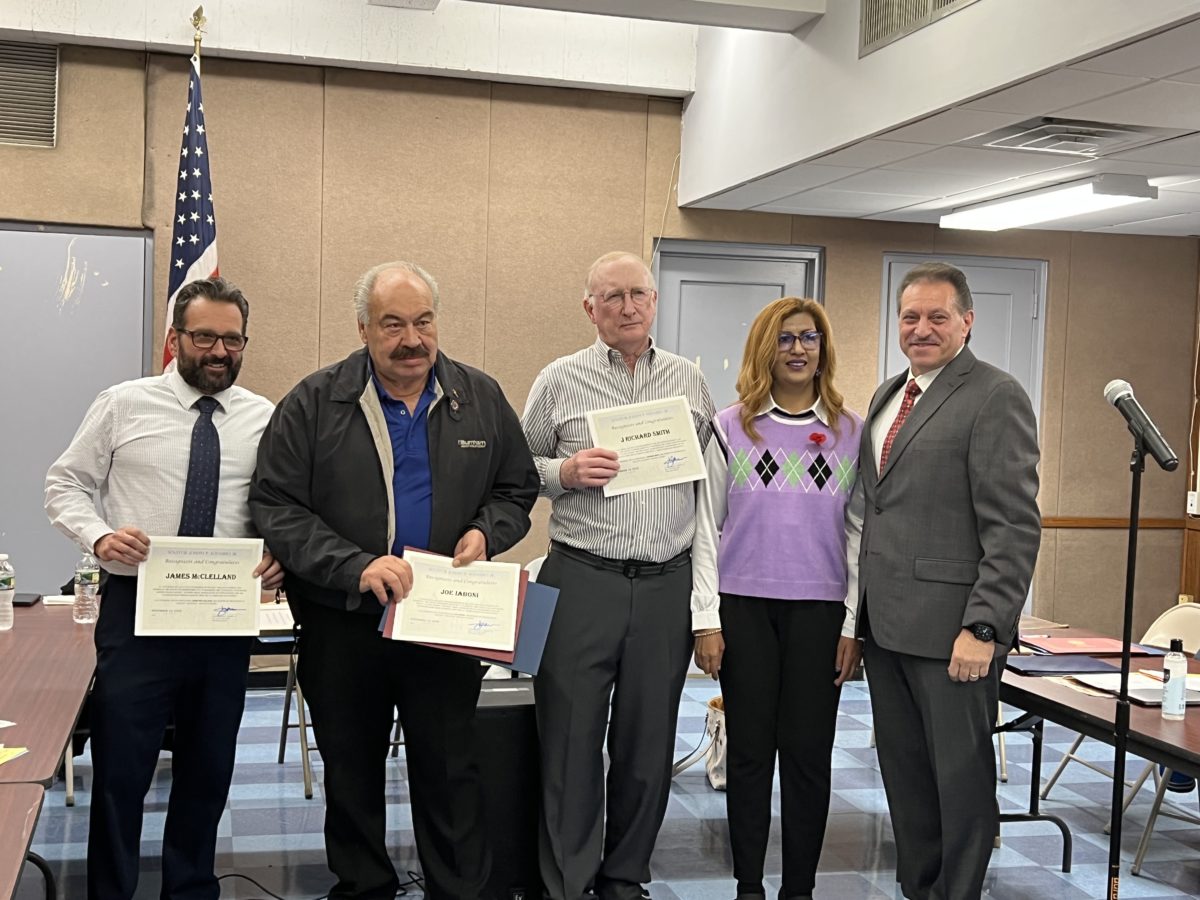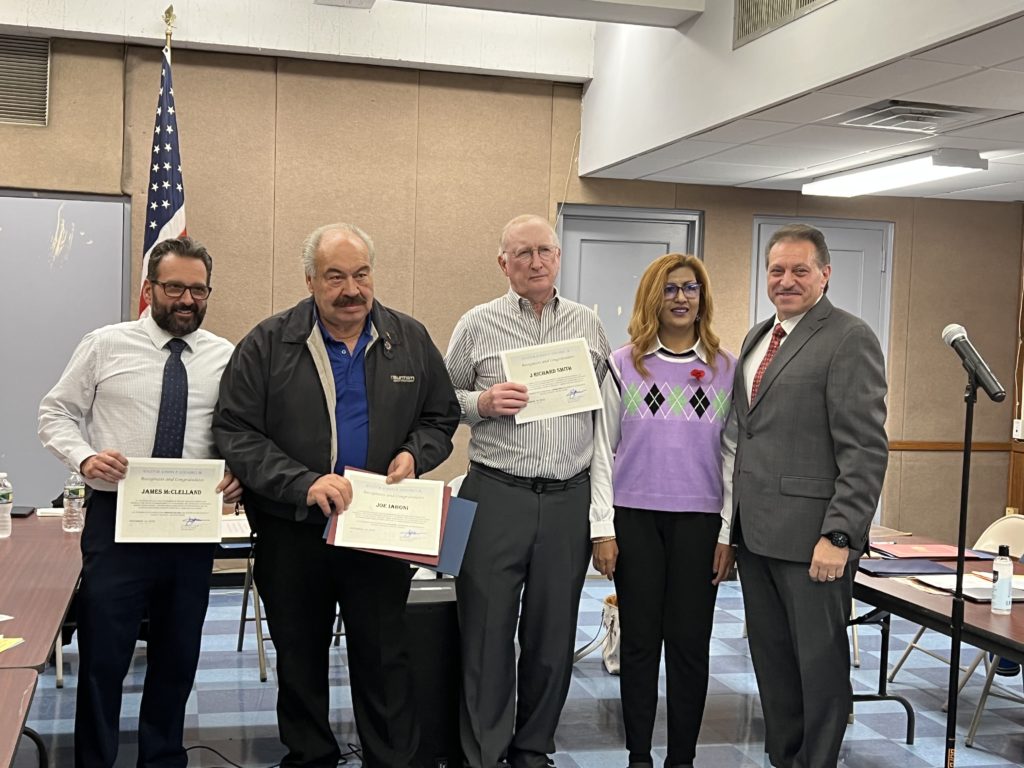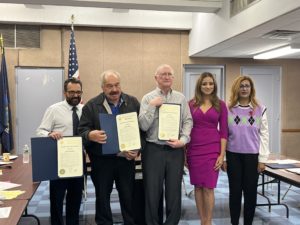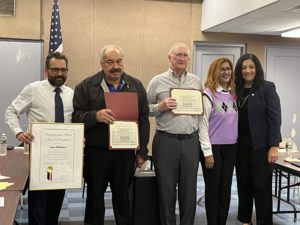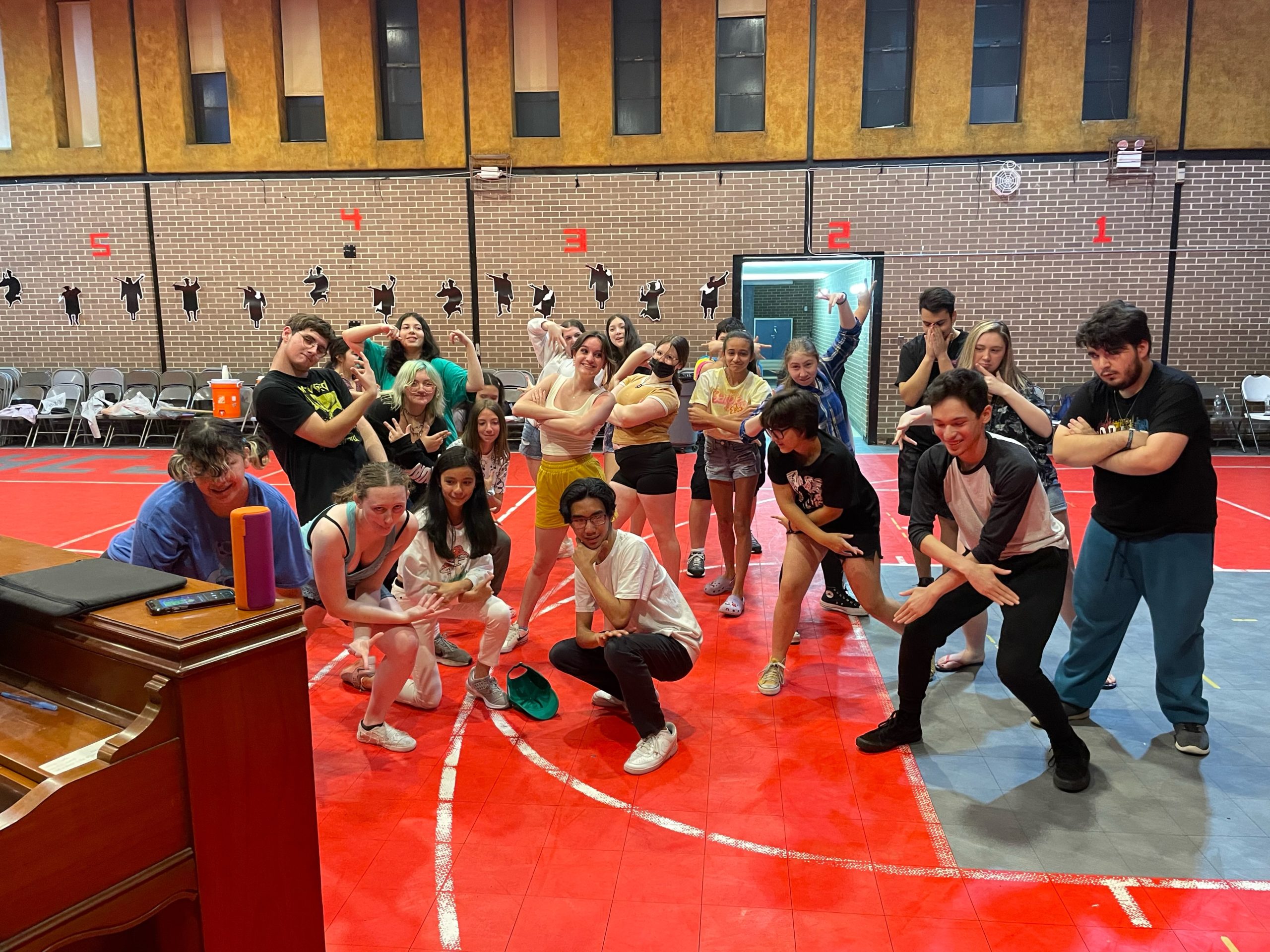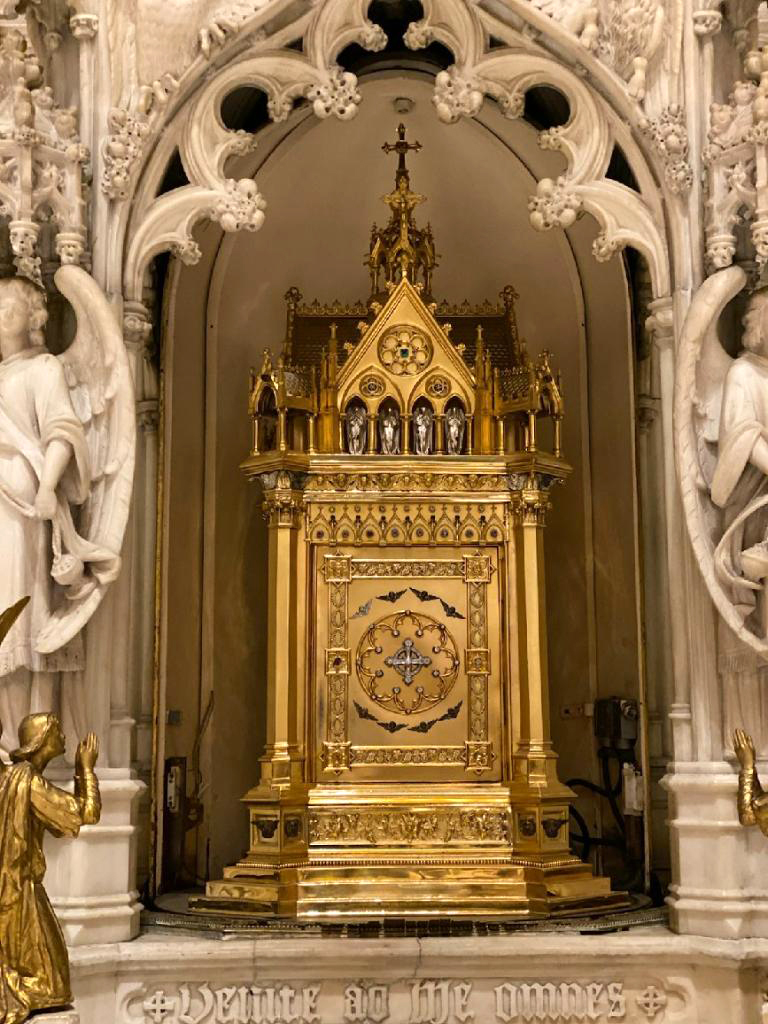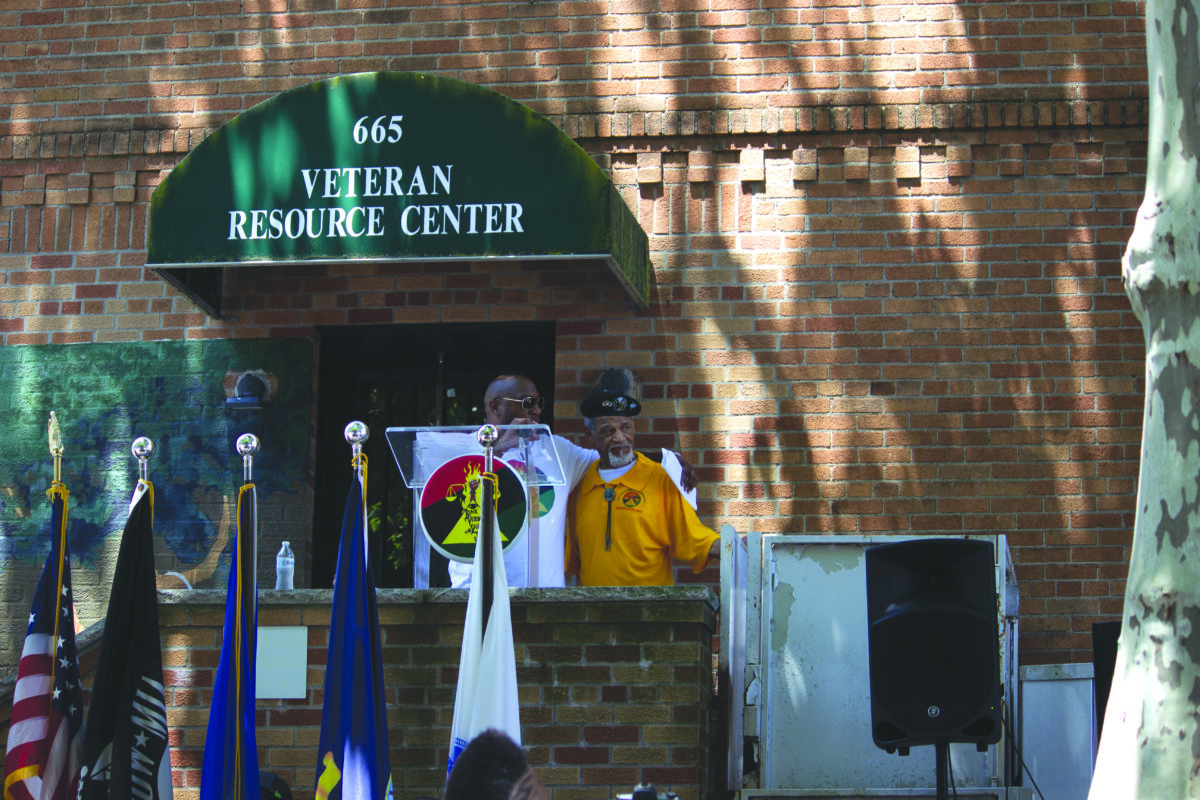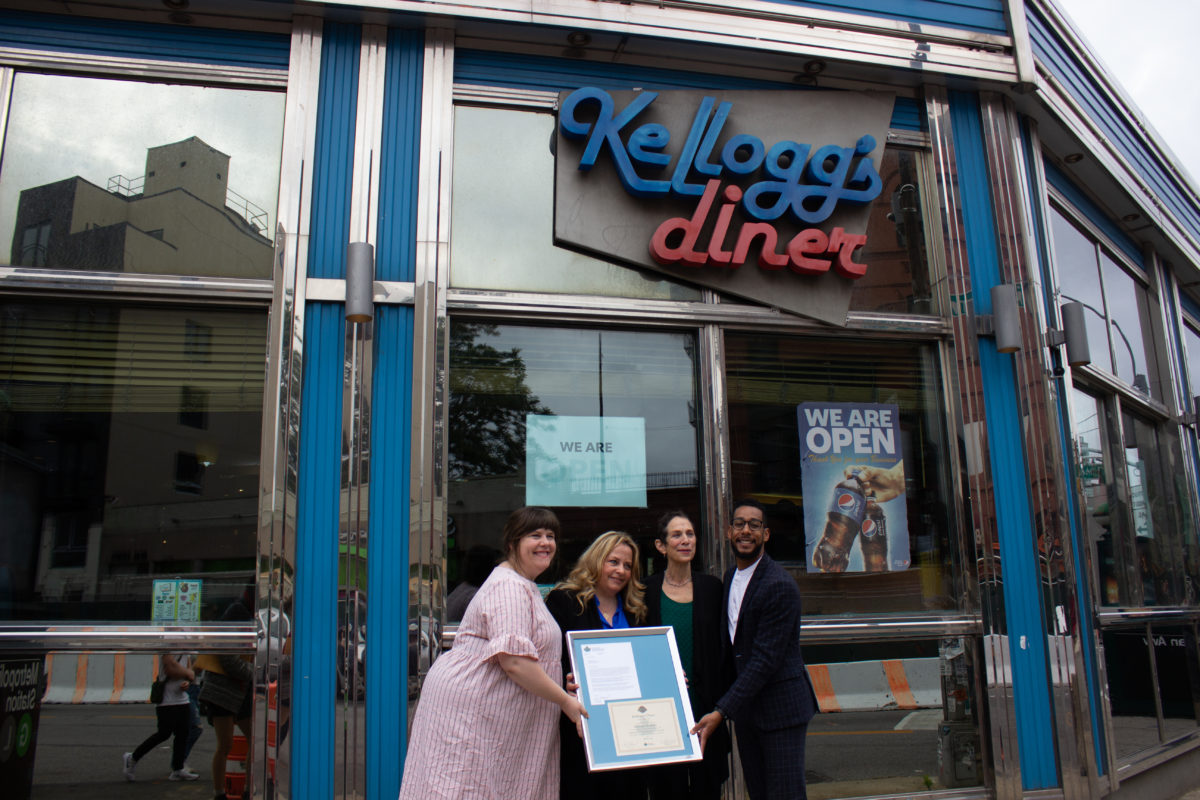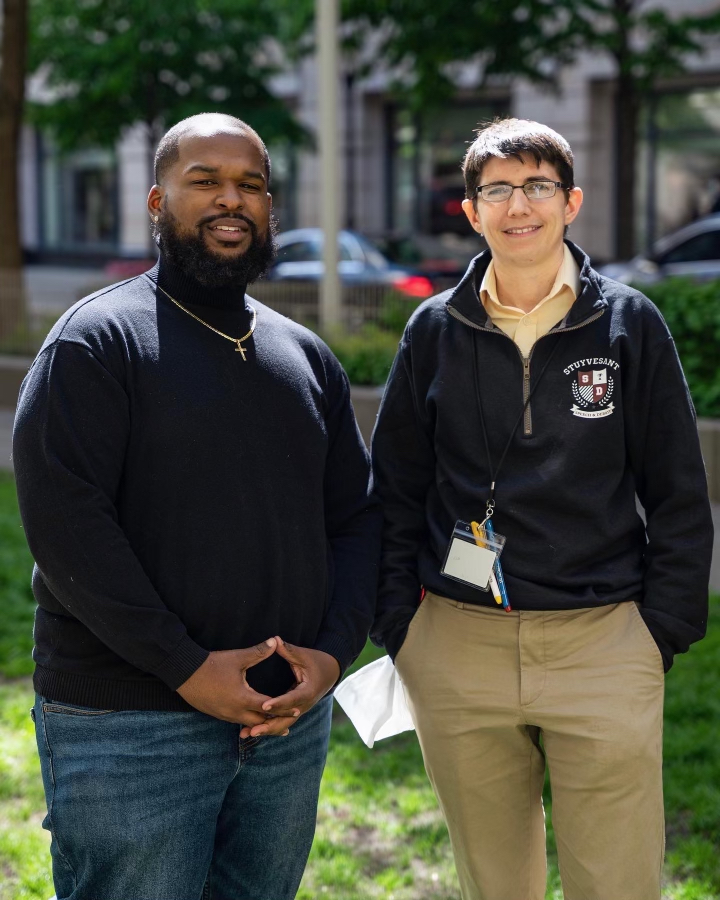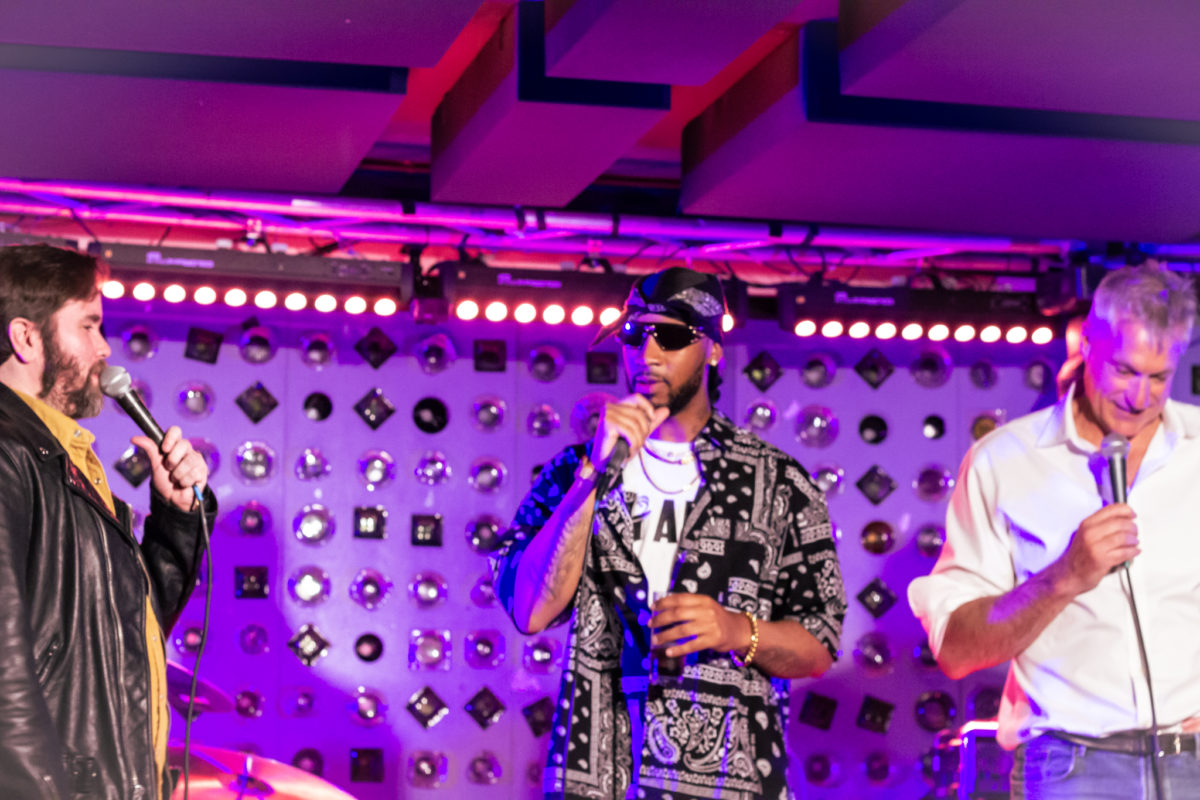Combining Talent to Help Women in Woodhaven
By Ed Wendell
projectwoodhaven@gmail.com
Participants in the Fall Artist Showcase, sponsored by the Woodhaven Art Circle and held at Emanuel United Church of Christ in September. A portion of the proceeds were donated to the School Sisters of Notre Dame Educational Center for Women here in Woodhaven.
Inside the School Sisters of Notre Dame Educational Center for Women there is a large collage entitled “The Wall of Fame.” It contains the photos of dozens and dozens of women who achieved their goal of going back to school, either to learn English or to get their high school diploma.
Sister Cathy Feeney, Executive Director of SSNDEC, stood in front of the Wall of Fame and pointed out some of her former students.
“This one here is now a social worker,” she said. “And this one here ended up serving on our board of directors.”
The Wall of Fame is full of many remarkable success stories she has seen in the years since the center was founded in 2004. And they are but a small fraction of the number of students whose lives were improved by the opportunities that the tuition-free center on 87th Street and 88th Avenue offers women.
Sister Cathy was giving a tour of the center to Mahfuza Shammy Rahman, Executive Director of the Woodhaven Art Circle, who was there to deliver a very special donation.
Near the end of September, the Woodhaven Art Circle held their first Fall Artist Showcase, with a portion of any sales to be put aside for SSNDEC. The event brought families, neighbors and friends together for a full day of art appreciation and celebration.
This week Ms. Rahman, professionally known as MSR, presented a check for $250 to the center on behalf of the artists of Woodhaven.
“We had a total of 25 artists in our Fall Artist Showcase,” MSR said. “With help from the Woodhaven Cultural and Historical Society and Emmanuel United Church of Christ, we were able to put on a very successful event and are proud to have raised enough money to be able to make this donation to the center.”
Mahfuza Shammy Rahman (at right), Executive Director of the Woodhaven Art Circle, presents a $250 donation to Sister Cathy Feeney (at left), and some of the students at the School Sisters of Notre Dame Educational Center for Women in Woodhaven.
Sister Cathy took MSR on a tour of the facility, which has been home to the center since they moved to Woodhaven back in 2009.
Currently over 90 students are attending the center, taking classes in English and Math and Social Sciences and one by one, they introduced themselves to MSR. Many of them expressed their gratitude to the center for giving them this opportunity.
Many of the students attending the center are from Woodhaven though they come from many different countries from around the world. In one class we visited, the six students we spoke with were from six different countries, all learning their lessons together.
Many of the students are mothers of young children, many of them you students themselves, right here in our schools in our community. These students’ achievements at SSNDEC not only improve their own lives but the lives of their children. This can only serve to benefit our community as a whole.
MSR was deeply moved by her introduction to the center. “Walking through the facility with Sister Cathy, I was able to feel the great energy of the space and meet some of the lovely students in various levels of ESL and GED programs,” MSR said.
“I am very touched by Woodhaven Art Circle’s generous donation,” Sister Cathy said. She took MSR to several classrooms, introducing her to all the students and their teachers.
Artists can do many things with their talents. Their works can inspire any type of emotion. A painting may make you happy or sad; an artist’s work may disturb or comfort you.
In this instance, a group of artists came together and pooled their talents to support the community they belong to.
“We were very honored to give back to an organization that is helping foster community growth for nearly 20 years and counting,” MSR said.
In less than two years the Woodhaven Art Circle has grown from an idea into something special, bringing added value to our community. We look forward to seeing what’s next for the group.

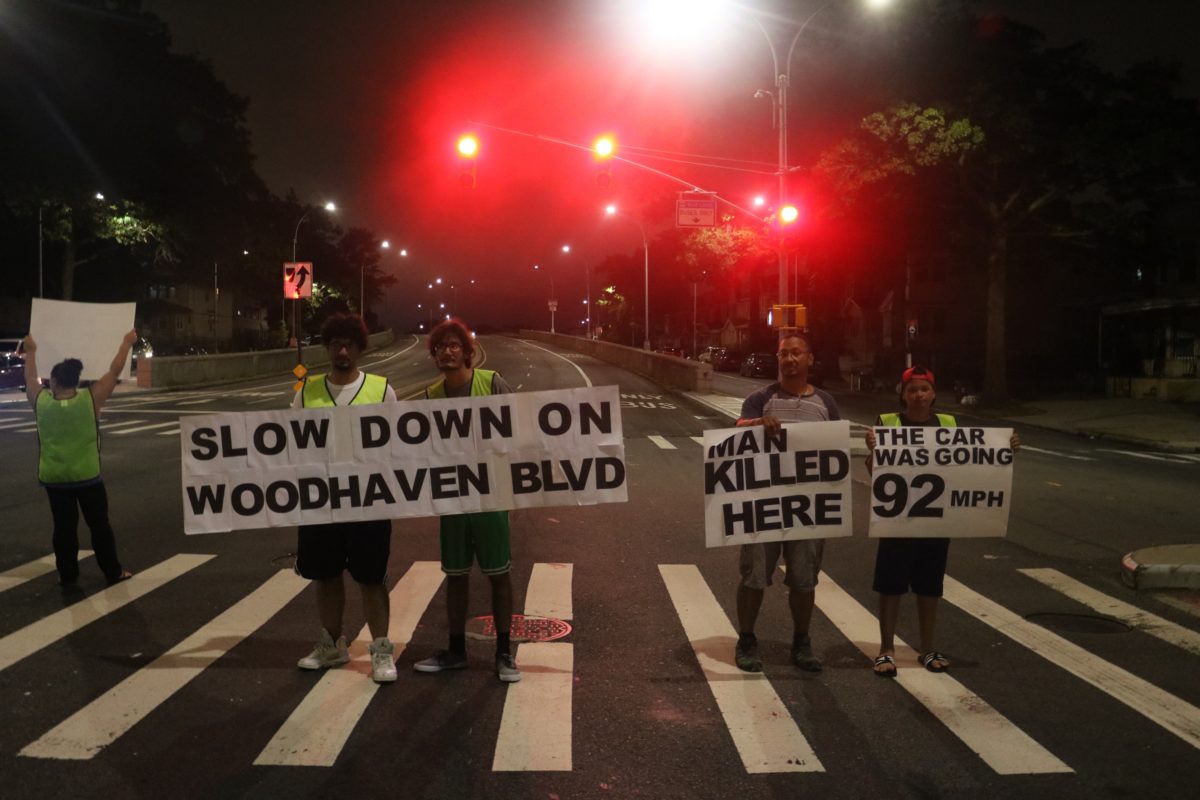
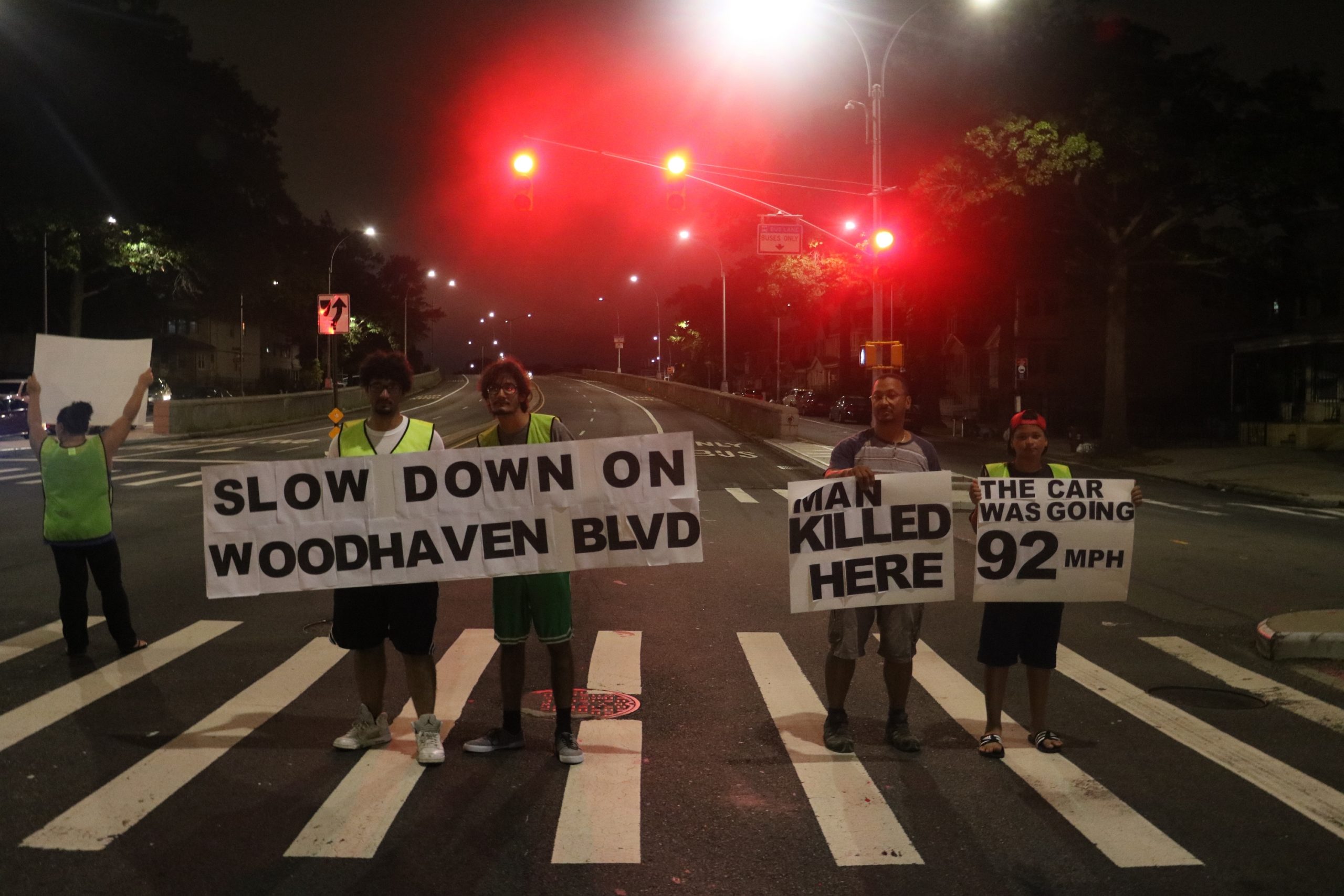
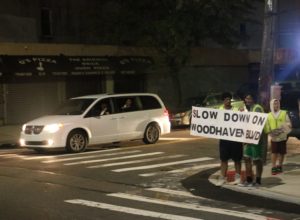 Turn yourself in. Now. Today. You will face punishment but it will go easier for you if you confess rather than waiting for the police to figure out who you are and apprehend you.
Turn yourself in. Now. Today. You will face punishment but it will go easier for you if you confess rather than waiting for the police to figure out who you are and apprehend you.